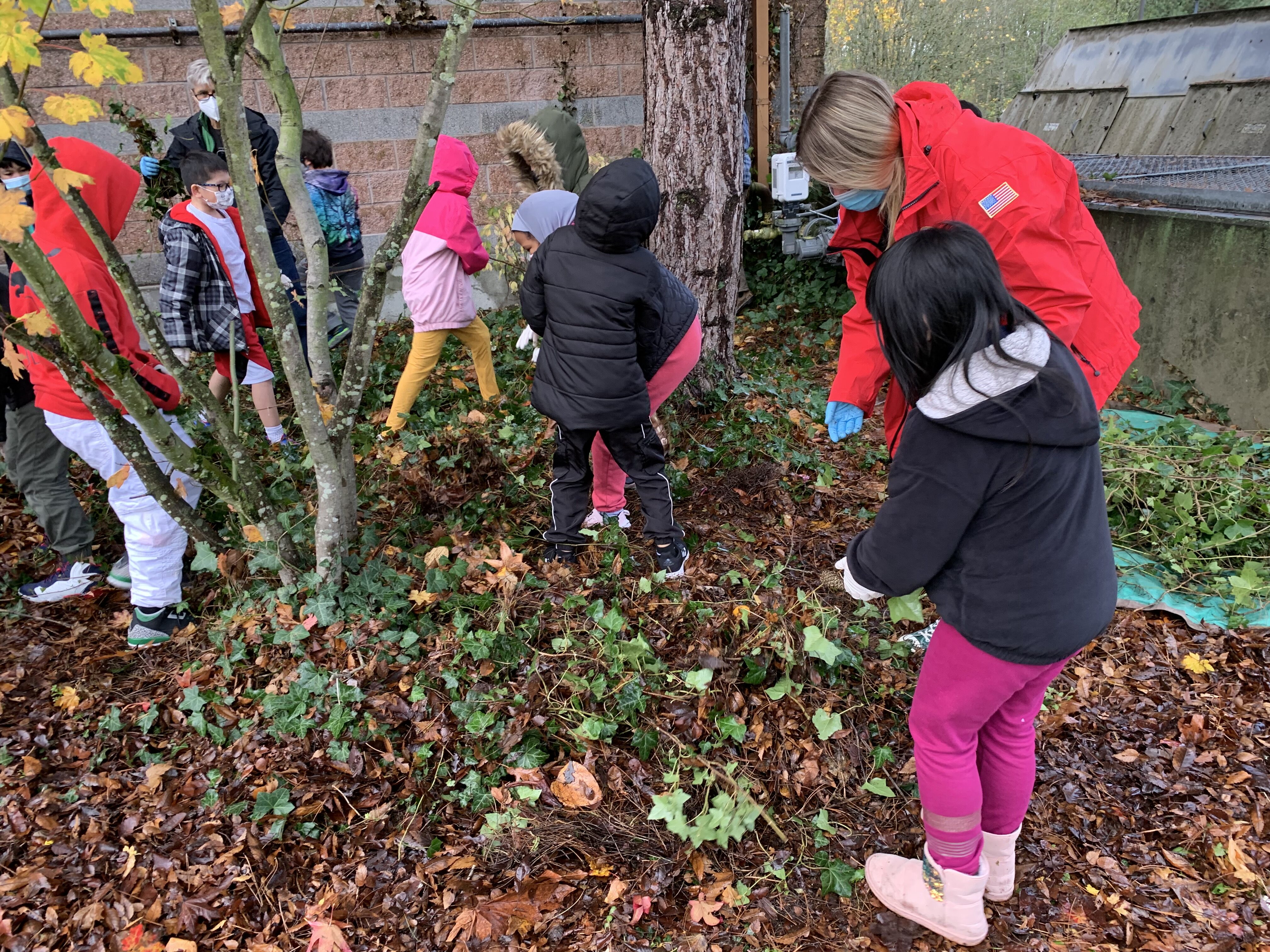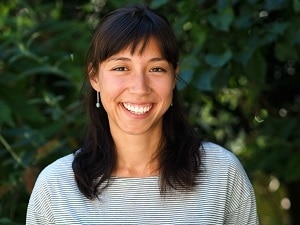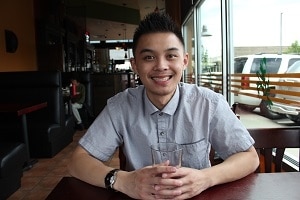Our work with teachers is critical in broadening our reach in the region.
What would it look like if IslandWood was able to support every teacher in a school with in-depth environmental and science-related teacher professional development and planning sessions for an entire school year? What kind of systemic change could that create for a school, and for the thousands of students that a school reaches over many years?
We’ve wondered this very thing. And this school year we finally get to pilot such a program!
Learn more about our pilot with Rising Star Elementary below as we discuss the program with Brad Street, IslandWood’s Senior Manager of Teacher Professional Development.
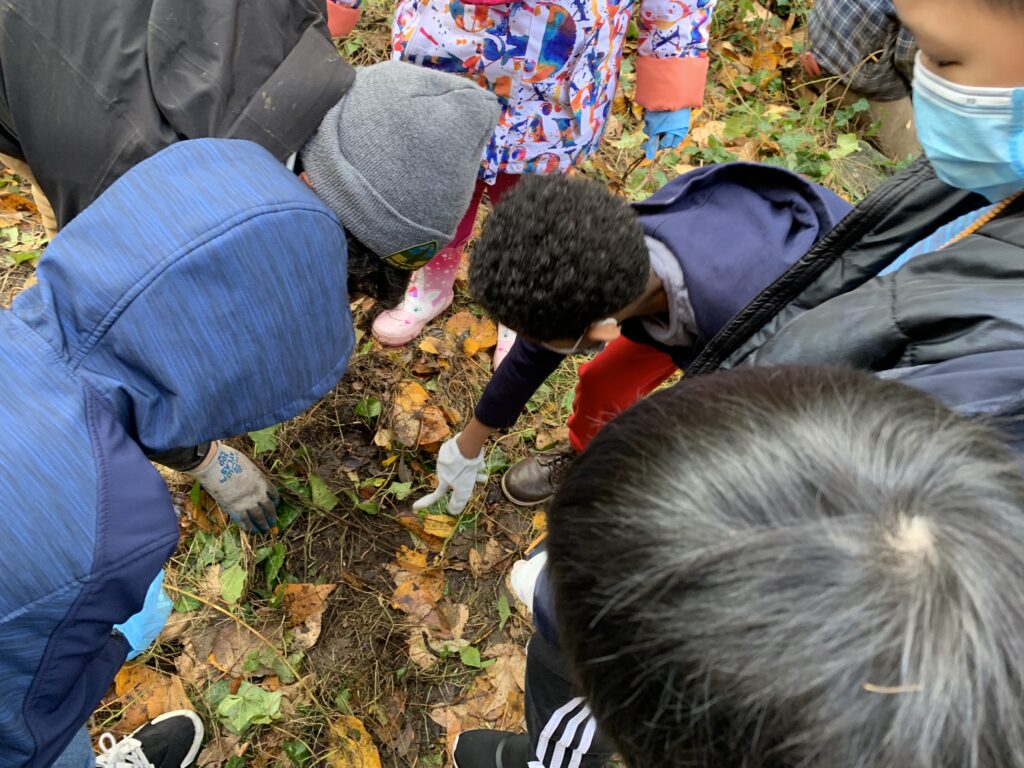
Students at Rising Star Elementary dig into a discovery!
Q: How did this pilot come about?
A: For several years, IslandWood has been the recipient of funding from ClimeTime, an initiative that supports science teacher training that links the Next Generation Science Standards (NGSS) and climate science. In our ClimeTime proposal this year, in addition to funding our regular free courses and workshops, we proposed funding that would allow us to work intensively with one high-opportunity school. And the proposal was approved!
Q: How was Rising Star Elementary identified for the pilot?
A: Rising Star, located in southeast Seattle, was chosen as an ideal partner for the pilot for a few key reasons – because of the longstanding relationship we already had with the school and their engaged, enthusiastic administration; the administration was able to dedicate teacher time to this program for the year, giving teachers the space in their schedules to attend; a high proportion of low income and historically underserved students (92% of students are BIPOC – Black, Indigenous or People of Color); the wetland and green space on the school campus; the school’s existing Nature Club; and other local partners we can work with together in support of the school.
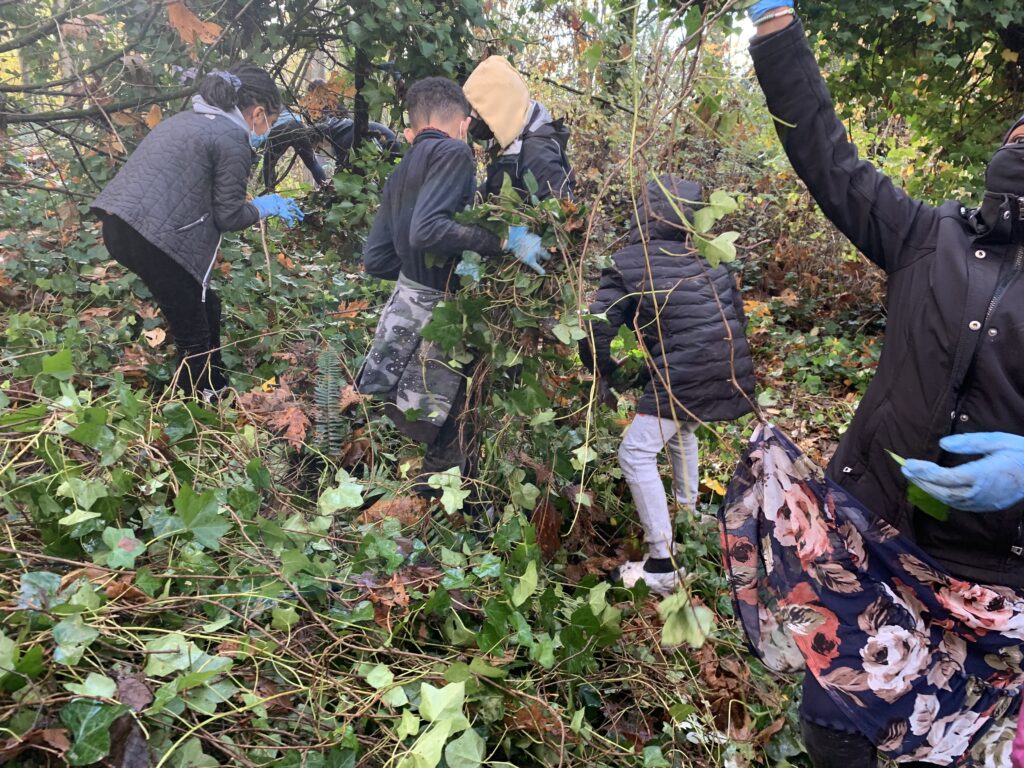
Students and teachers work on ivy removal from school grounds with IslandWood and Dirt Corps staff.
Q: You have long wished for IslandWood’s Teacher Professional Development team to have the opportunity to support an entire school’s staff more deeply. Can you share a bit why this has been an important goal?
A: Yes! There are several reasons.
- Our existing teacher professional development courses are great, but we currently get teachers registering that are already excited about science-focused development. We have been looking for ways to better reach teachers who may not normally sign up.
- In our current teacher PD offerings, we don’t have the longer amounts of time required to systematically look with teachers at the environment and natural assets surrounding their schools. We believe very deeply that connecting to local places is extremely important for connecting students to science and making it something that feels relevant to their lives instead of a set of abstract concepts that they have to learn but have no relevance to their lives. With this program, and more dedicated time, we’re addressing this much more robustly.
- Teachers’ capacity is so limited. They have so much to do and so much on their plates. I’ve wondered how we can lean into supporting them in a way that works best for them and fits better into their schedule. With this pilot, the school administration has dedicated and built the professional development into teacher schedules, so they don’t have to find extra time outside of school to participate.
- Lastly, with our current offerings, we see a lower percentage of teachers from schools with historically underserved students. This approach has us going to teachers at their school instead of expecting teachers to find the time and capacity to sign up for a more general professional development and we’re hoping this will make a positive difference.
Q: What does the pilot entail?
A: We are working with teachers across all grade levels at Rising Star, from pre-K through 5th grade, to explore how focused professional development efforts can make a difference for teachers and students at a historically underserved school. After a year of intensive support, we will assess the impacts and share our learnings. Specifically, the pilot includes:
- Partnering with the Rising Star administration, Puget Sound Educational Service District, and EarthGen on planning and delivery of the pilot effort and working on building long-term school-community partnerships with local organizations like Dirt Corps, Tomorrow Project, Duwamish Valley Youth Corps, and Nurturing Roots.
- IslandWood and EarthGen staff started the school year with two schoolwide sessions that laid the groundwork for the year by introducing place-based strategies and simple outdoor activities that help to connect to students’ interests, communities, and identities. We worked with teachers to identify school and community assets such as potential campus learning spaces and a nearby BIPOC owned urban farm (Nurturing Roots).
- We have followed up with grade-level sessions with teachers to identify local phenomena, community connections, field activities, and place-based understandings that support Amplify’s curriculum (the science curriculum utilized by Seattle Public Schools) and explore how science and the school grounds can be integrated with English language arts, math, social studies, and art.
- We are planning to collaborate with afterschool program providers to incorporate schoolyard and community assets into their afterschool programming as well.
- As a part of the grade-level work, we are supporting student action projects, including restoration work on the school grounds and others to be determined (possibly a pollinator garden and energy use assessment). This fall we took the first step, along with school students & staff, and other local partners including Dirt Corps and Duwamish Valley Youth Corps, in the restoration project in the school’s adjacent green space to reduce the ivy, save some trees, and create greater biodiversity, which strengthens the entire ecosystem.
- There will be a professional development workshop held in the spring for teachers and students to share their action projects, progress, and lessons learned with other schools’ teachers and administrators in the region.
- In addition, teachers will receive STEM clock hours and implementation stipends for their time.
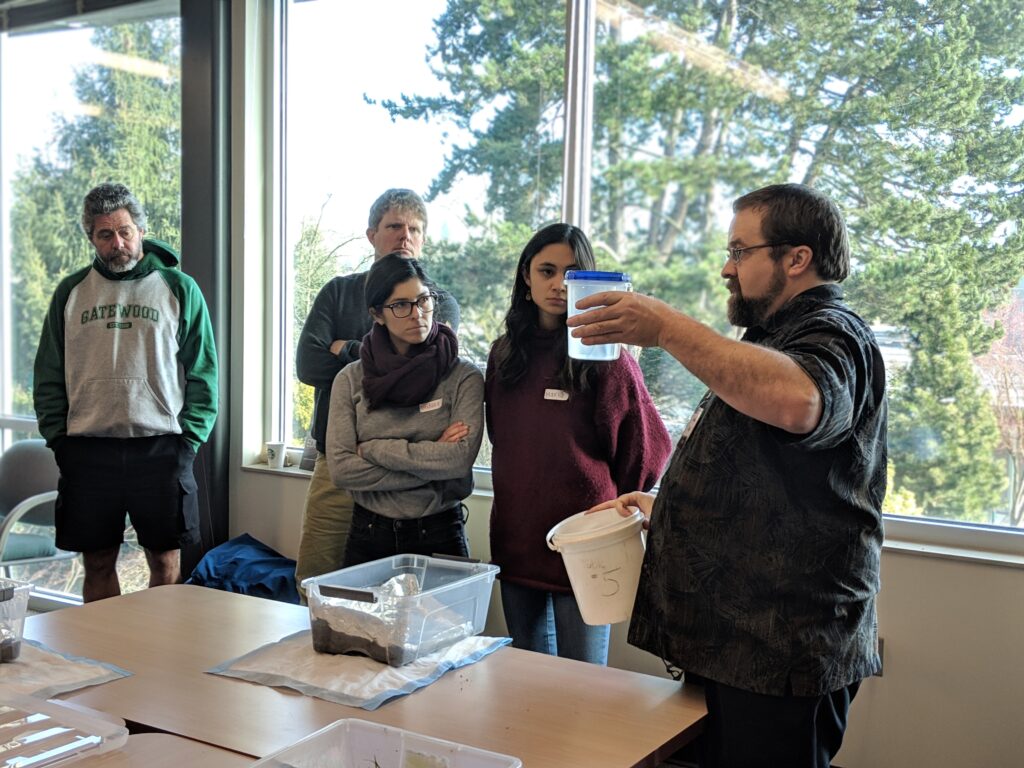
Brad Street, IslandWood’s Senior Manager of Teacher Professional Development, leading a group of teachers in a stormwater demonstration during a 2019 Teacher Professional Development workshop.
Q: How will the pilot be assessed?
A: We’ll use both formal and informal evaluation to reflect on the effectiveness of the program.
- We are consulting with an external evaluator on effective practices.
- We’ll be using session exit surveys (a survey after each teacher development session throughout the year), mid-year and end of year teacher surveys, and teacher implementation summaries.
- Project leads will review feedback following each touchpoint with teachers and do a mid-year review with IslandWood, the school administration, and EarthGen staff to identify opportunities for growth in the design and delivery of content throughout the year.
- We will be paying close attention to how teachers perceive accessibility of the professional learning structure, our offering of anti-racist teaching strategies, the relevance of curriculum, ability to successfully implement learnings with their classes, and to changes in student engagement with science instruction.
- In addition to formal evaluative feedback, we will prioritize dialogue through relationships with teachers, teacher facilitators, and community partners.
Q: What does success look like to you?
A: Well, it looks like a couple of different things to me.
- Firstly, I’d like to see partners and the Office of Superintendent of Public Instruction (OSPI) funding continuing this pilot into a second year.
- At the end of year one, I’d call it successful if teachers at the school are excited about this work, spreading the word to other teachers and encouraging greater participation from teachers in year two.
- Longer-term, I would say that I’d hope for all teachers in the school to ultimately have ways that they can incorporate their local place into their classroom learning and that they have systems and ideas from the program that they can use in their teaching for many years to come.
- And lastly, success might look like expanding this to other schools, if it proves effective and we’re able to secure the funding.
Q: How else do you plan to utilize the learnings from the pilot?
A: We plan to do a few things to make the learnings useful for others in the field, including:
- Presenting about the work at regional and national conferences, including North American Association for Environmental Education, E3 Washington, and ClimeTime.
- Synthesizing learnings into a workshop for the broader education community.
- Creating a framework that can be scaled and replicated for other schools/districts and shared within the ClimeTime network.
- And, as we’ve done with other programs, we’ll design and upload all training curriculum, resources, and lessons as ADA-compatible open educational resources (OERs) for public access.
If you haven’t already, subscribe to our newsletter to stay updated on news and events!

